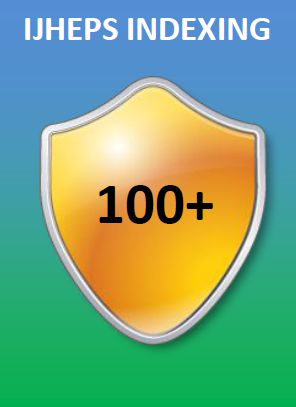
e-ISSN 2320-2955, p-ISSN 2249-2569, ISBN 978-81-909047-9-7
INTERNATIONAL RESEARCH JOURNAL OF HUMANITIES,
ENGINEERING & PHARMACEUTICAL SCIENCES
(An International Registered Research Journal) - Now IJHEPS Recommended By International Committee of Medical Journal Editors, USA
- Now IJHEPS Recommended By International Committee of Medical Journal Editors, USA
| PHARMACY | |
|---|---|
| Title | A STUDY ON DRUG USE AND DOSING IN RENAL IMPAIRED PATIENTS IN A TERTIARY CARE TEACHING HOSPITAL |
| Authors | Dr. Kousalya K, Lokesh Gupta, Dr. Soundararajan P, Dr. Ravichandiran V |
| Page No | 25-30 |
| Code | Int./JUNE15/PH1027 |
| Affiliation | Vels University & Sri Ramachandra University, INDIA |
| Abstract | Background and objectives: Chronic Kidney Disease (CKD) patients are often affected with many diseases and hence because of these co-morbidities, medical care for CKD patients becomes more complex. Physicians and pharmacists can work together to have safe drug prescribing and this requires stepwise approach to ensure effectiveness, reduce further damage and prevent drug nephrotoxicity. Hence this study was carried out with the aim of evaluating the drug use and dosage in renal impaired (RI) patients. Methods: This prospective observational study was carried out in the department of General medicine and Nephrology. The case sheets of renal impaired patients were studied. Each drug in the prescription of each patient was analyzed critically. To assess the need for dosage adjustment, dosing guidelines for patients with chronic kidney disease was referred. Drug-drug interactions were identified by referring Stockley’s drug interactions, uptodate software. Results: A total of 1219 drugs were found to be prescribed for 150 RI patients. Of 1219 drugs, 112 drugs were found to be of renal risk drugs. In 112 drugs, 98(88.1%) drugs require dose adjustment and 14(11.9%) drugs should be avoided. 26 patients were prescribed with two or more renal risk drugs. Among 1219 drugs prescribed, 14 drugs had major interactions, 505 drugs had moderate interactions and 87 drugs had minor interactions. Conclusion: Drug prescribing in renal failure: dosing guidelines for adults can be implemented in an alert system that could help physicians and pharmacists to adapt appropriate drug dosing regimen. |
| Paper | Download |









